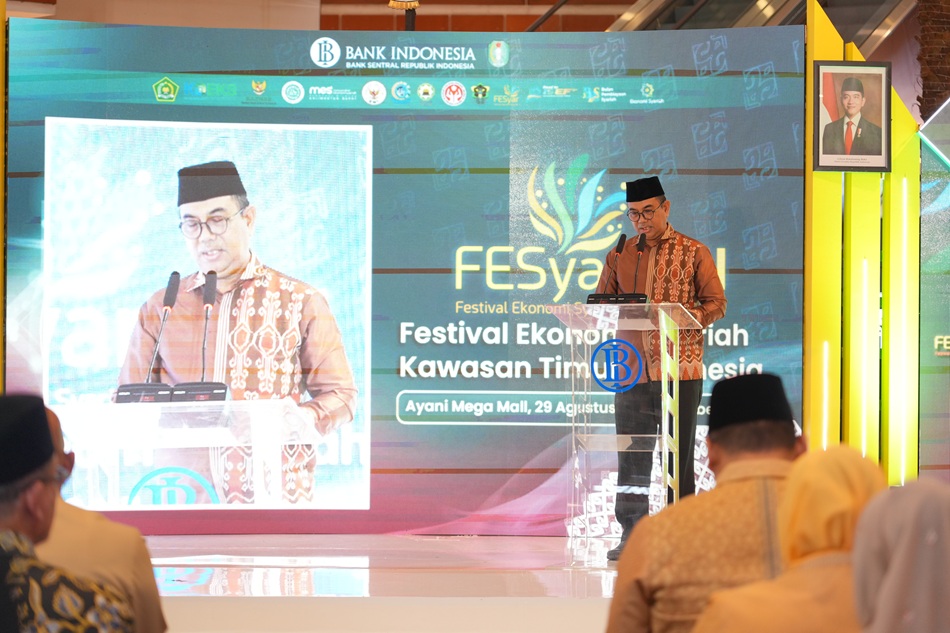The Eastern Indonesia Sharia Economic Festival (FESyar KTI), held in Pontianak from August 29 to September 1, 2025, marked a significant milestone in promoting the sharia economy as a catalyst for inclusive growth.
The event brought together communities, Islamic boarding schools (pesantren), and MSMEs to reinforce economic transformation across the region.
“This event is a strategic moment to mainstream sharia values and give the public deeper insight into its development,” said West Kalimantan Deputy Governor Krisantus Kurniawan, in remarks delivered by Regional Assistant III, Alfian.
Kalbar Positioned as Emerging Halal Industry Hub
West Kalimantan (Kalbar) was highlighted for its rich cultural diversity—Dayak, Malay, Chinese, and its authentic halal products ranging from traditional cuisine and halal tourism to modest fashion.
“This diversity is a strong asset to position Kalbar as a new center of halal industry growth in Indonesia,” Krisantus added.
Kalbar’s economic potential includes key halal commodities such as palm oil, rubber, coffee, aloe vera, and fisheries.
Its cross-border trade access via Entikong and Aruk opens halal export routes to Malaysia, Brunei, and ASEAN, supported by Islamic-Malay cultural tourism icons like the Kapuas River and the Equator Monument.
Bank Indonesia: Sharia Economy Is Integral to National Development
According to Imam Hartono, Head of the Sharia Economy and Finance Department at Bank Indonesia, “The sharia economy is not just an alternative, but an integral part of national development strategy.” FESyar KTI 2025 served as proof of this commitment.
The festival generated tangible results:
- Halal product sales across 22 provinces
- Rp15.8 billion in sharia-based MSME financing
- Implementation of 16 Halal, Safe, and Healthy Culinary Zones (Zona KHAS)
- 2,240 halal certifications facilitated for MSMEs in Eastern Indonesia
Driving Sustainability and Public Literacy Through Collaboration
The event drew over 44,000 visitors and showcased forward-looking collaborations. The Green Space x Plastic Pay initiative recycled more than 4,200 plastic bottles, reducing the carbon footprint by 450 kilograms.
FESyar also conducted a Training of Trainers for 456 journalists to enhance public literacy in the sharia economy.
Additionally, the launch of the Kalbar Berwakaf Movement reinforced the role of endowments (wakaf) as a tool for social and economic development.
Toward Indonesia as a Global Sharia Economic Center by 2029
FESyar KTI is part of a national roadmap leading to the Indonesia Sharia Economic Festival (ISEF) 2025 in Jakarta.
Bank Indonesia, in collaboration with the National Committee for Islamic Economy and Finance (KNEKS) and strategic partners, continues to strengthen the halal value chain, inclusive Islamic finance, and literacy rooted in Islamic principles.
The long-term vision: to position Indonesia as a global hub for the sharia economy by 2029.
PHOTO: BANK INDONESIA
This article was created with AI assistance.
Read More






 Monday, 26-01-26
Monday, 26-01-26







